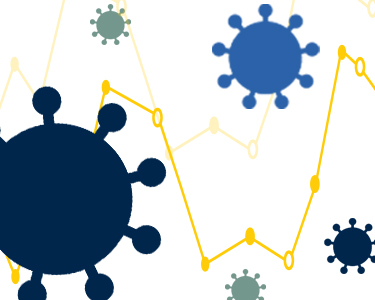Infectious Disease Modeling

Infectious disease modeling is a very challenging public health research field that encompasses a broad range of clinical and methodological problems. Some of important modeling tasks related to disease surveillance include to develop spatiotemporal dynamic models to evaluate the effectiveness of a public health surveillance system on monitoring the evolution of infection, to assess the compliance and efficacy of government-issued control measures, to identify hotspots of contagion, and to predict the future trends and events of epidemics. Moreover, design and conduct effective population-level sampling schemes are essential to estimate the prevalence of disease via serological antibody surveys. Modeling tasks related to preclinical and clinical studies of vaccines include statistical models and methods for the development of vaccines through multiple phase randomized clinical trials, and for the development of data-driven operational strategies to maximize the coverage of vaccination. Additional tasks include statistical design and analysis procedures to evaluate treatment safety and efficacy of drugs used for treating infected patients and to model post-infection survival using electronic health records. Faculty in Biostatistics work on developing better infectious disease models, survey methods, and clinical studies using electronic health records.
Faculty: V. Baladandayuthapani, M. Banerjee, M. Elliott, J. Kang, Y. Li, B. Mukherjee, M. Schipper, P. Song, J. Taylor, L. Wang, Z. Wu
